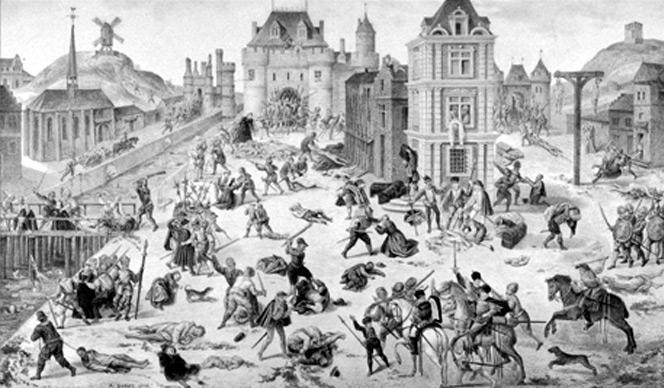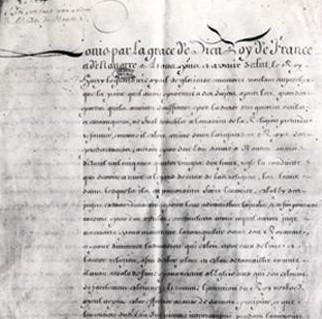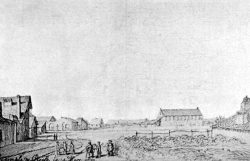Bordeaux (Gironde)
Protestantism was introduced to this trading port thanks to commerce with Protestant countries, such as England, Flanders and Holland. In 1560, there were some 7,000 Protestants. As in Toulouse, the parliament in Bordeaux tried to suppress the heresy.
The first temple was built outside the city walls in Bègles
Many people were murdered in the city during the Saint Barthélémy massacre. The Edict of Nantes in 1598 was registered two years after its proclamation.
Isolated outside the city, the temple built after the Edict of Nantes consisted of a 20-meter-long room, lighted by ten high narrow windows.
A sober architecture
The roof was two-sloped, a main entrance was opened on the northern side. Inside there was no decoration, the naked walls were lime washed, and the pews for the councillors or authorities were placed before or under the pulpit and faced the front.
The Ten Commandments were written on the walls.
In 1685, shortly before the Revocation, the temple was demolished. On the levelled ground the Archbishop of Bordeaux had a monumental cross installed on the Prêche Square, today called the Duhourquet Square.
Protestantism survived in Bordeaux thanks to the leading situations held by the Reformed in trade, freight, and industry whereas, until the end of the 18th century, all civil positions were held by Catholics.
Bordeaux (Gironde)
Bordeaux
Bibliography
- Books
- DUBIEF Henri et POUJOL Jacques, La France protestante, Histoire et Lieux de mémoire, Max Chaleil éditeur, Montpellier, 1992, rééd. 2006, p. 450
- LAURENT René, Promenade à travers les temples de France, Les Presses du Languedoc, Millau, 1996, p. 520
- REYMOND Bernard, L’architecture religieuse des protestants, Labor et Fides, Genève, 1996
Associated notes
-

St. Bartholomew's Day (24th August 1572)
Charles IX had tried to reconcile the two religious parties, but when this failed, he was driven by the Guise family to authorize the Catholics to assassinate the Protestant leaders; the situation... -

The Edict of Nantes (1598)
This was Henri IV’s major achievement : the terms of this edict ensured the peaceful coexistence of Catholics and Protestants and brought a stop to all hostilities in France after 36 years... -

The Edict of Fontainebleau or the Revocation (1685)
In October 1685, Louis XIV signed the Edict of Fontainebleau which repealed the Edict of Nantes. It banned Protestant worship and the emigration of Protestants. Pastors were banished.

